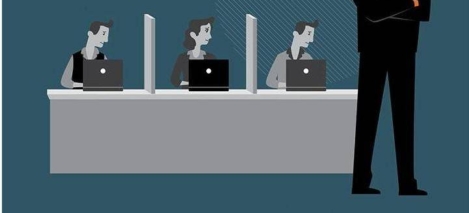March 21, 2016
Staff value engagement and culture but many feel let down by employers 0
 Real estate consultancy JLL has issued a survey to explore the results of its January 2016 report into workplace engagement. The new study reveals – perhaps unsurprisingly – that there is a mismatch between employee’s positive attitudes towards the issues of engagement and culture and their negative experience of them in their current roles. So, while 87 percent of respondents agree that engagement and culture are key drivers of organisational performance, 42 percent don’t believe that their employer effectively capitalises on the workplace to enhance employee engagement, 46 percent do not think that their workplace is used as a key competitive differentiator to attract and retain talent and 41 percent do not agree that their workplace is used as a tool to generate a positive company culture. The study highlights the issues associated with lack of engagement and suggests a number of solutions to help employers engage with staff.
Real estate consultancy JLL has issued a survey to explore the results of its January 2016 report into workplace engagement. The new study reveals – perhaps unsurprisingly – that there is a mismatch between employee’s positive attitudes towards the issues of engagement and culture and their negative experience of them in their current roles. So, while 87 percent of respondents agree that engagement and culture are key drivers of organisational performance, 42 percent don’t believe that their employer effectively capitalises on the workplace to enhance employee engagement, 46 percent do not think that their workplace is used as a key competitive differentiator to attract and retain talent and 41 percent do not agree that their workplace is used as a tool to generate a positive company culture. The study highlights the issues associated with lack of engagement and suggests a number of solutions to help employers engage with staff.








































March 22, 2016
A growing need to create an office that attracts rather than repels staff 0
by Darren Bilsborough • Comment, Property, Workplace, Workplace design
So where do you start when identifying the attributes that make an office an ‘attractor’ for staff? There are numerous articles extolling the virtues of everything from pool tables, to hammocks, creative “playgrounds” and all manner of enticing and unique workplace design considerations. However, I believe that there are more intangible and subjective issues at stake such as building aesthetics, prestige and values alignment. Very few businesses benefit from working in low-key, nondescript locations. The only likely motivation for occupying such a space would be cost-driven. Likewise, nobody wants to work in a building that is run-down, outdated and clearly past its best-by date. It is preferable for most office workers to work in a building that is new, interesting, prestigious or an acknowledged landmark. It becomes something they can be proud of and would be happy to share with family, friends and colleagues.
More →